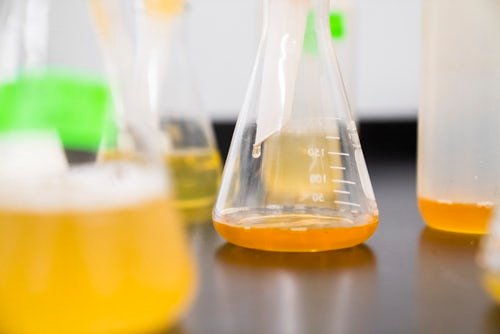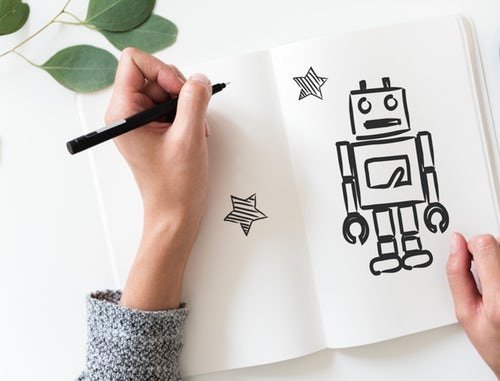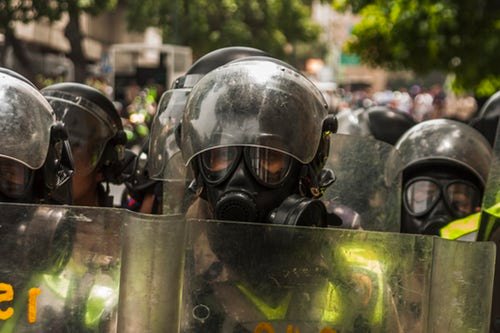The Problems with Drug Tests as I See Them
.jpg)
With all the talk that we hear about how sacred our right to govern our bodies is and the discussions of the importance of maintaining our privacy, I am surprised that people let one very serious violation of both of those things slip by without much notice. Employers commonly demand little bits of our bodies as a condition for employment. They examine those pieces of us to invade our privacy and to determine how we spend our free time. If they decide that they don't approve of how we use our bodies, they can deny employment to us. I am, of course, talking about pre-employment and on the job drug tests. The stated claim is that "drug free" workplaces are "safer" but this idea does not seem to hold up, in my mind. That claim, from my perspective, is largely based on false assumptions and ridiculous double standards. However, it does seem to serve other purposes. The use of these testes forces a worker or potential worker to surrender his or her right to bodily autonomy to an employer. The tests normalize absurdly intrusive privacy violations in the name of safety. They serve the interest of the systems of authority because they are a continuation of the drug war. Simply put, demanding that employees submit to drug tests is an extreme abuse of power and I think that it is important for us to examine how they function to intrude on our personal lives, violate our most basic of rights, and support the corporate and governmental authorities.

The concept of drug tests leading to a safer workplace is both flawed and hypocritical. The use of drug tests to determine a person' suitability for employment rests on several dubious beliefs. The first is that the impairment caused by illegal drugs is, somehow, more dangerous than the impairment caused legal ones. The second is that all use of illegal drugs is, by its nature, abuse. Lastly, it assumes that all drug "abusers" are addicts who cannot control their drive to use a drug when their sobriety is necessary. Of course, none of those things is accurate to the reality of drug use. Impairment is highly dependent on which particular substance that a person is talking about. LSD would be harder to drive on than cocaine or cannabis, for example. However, when we look at the potential to cause accidents (which is usually the stated concern), legal alcohol is far more "dangerous" than the vast majority of illegal drugs but employers do not typically care how much a person drinks, as long as he or she does not drink on the job. All use is not abuse and, again, I will point to alcohol to demonstrate this. We all know that alcohol can be quite addictive and that it can cause many problems in the lives of people who become addicted to it but we also understand that most people who drink do so in a measured way. That is to say, they use alcohol but they do not abuse alcohol and the same concept follows with other drugs. Most people who take them, only take them only at times when it is safe and appropriate which contradicts the idea of all drug users being inherently addicts.
There is an element of "creepiness" that is involved with the demand for parts of our bodies as a condition for employment and it hints at the predatory nature of the request. If a boss demanded a cup of our piss so he or she could pour it on his or her face while he or she makes uncomfortably prolonged eye contact with us and rubs his or her crotch, we would be justified in pepper spraying that person and running out of the room. If, on the other hand, that same person demands a cup of our urine so that it can be tested for drugs, we don't seem to take it as the same kind of violation but the action is equally creepy, in my mind. A person, who has power over us, has demands to have a part of our bodies. If we do not give it to that person, he or she will punish us with his or her power by firing or refusing to hire us. He or she takes our pee, blood, or hairs and obsesses over them (like some kind of fetishist) to try to learn something about us that we would prefer to keep private. The intention might be different than that of a sexually predatory supervisor but some of the the effect is the same. That is, we are made to understand that our bodies (which society, rightly, tells us that we are supposed to govern for ourselves) are subject to the demands of an employer.

Drug tests also impose the will of an employer on the privet lives of employees by requiring "work place conduct" during times for which the employee is not being paid. This changes their relationship from worker and employer to servant and master. If the employer can dictate which activities a person can engage in during his or her free time, that time is not actually "free." In his or her time off, the worker becomes a "slave" because his or her personal choices are controlled by the "master" who has not paid the worker for the right to control those decisions during those times. I can already hear the criticism that says "but the workers are submitting voluntarily." That is true in the sense that no one is holding them in a particular job by force but that let's look at a slightly larger picture. We all have a drive to survive (unless we are suicidal). That drive forces us to do certain things in order to continue surviving. If a person want's to eat (and most people do), he or she may "choose" to accept a very unfavorable situation in order to satisfy his or her basic needs but the instinct that influenced the "choice" in no more voluntary than breathing.

Controlling the personal lives of employees does not always directly benefit employers (though it can) but the secondary effects that the use of drug tests has on the minds of employees serves both the corporate agenda and the agenda of the larger systems of authority. Drug tests normalize the ideas of submission and the invasion of privacy. Because drug tests are routinely required, we have stopped questioning them and the concepts of allowing our free time to be controlled and our privacy to be violated also begin to seem equally routine. When the government comes along and says that it needs to spy on everyone to "fight terrorism," we say "okay" because we are already comfortable with the people who pay us "protecting" us in similarly invasive ways. When our bosses make more unreasonable requests, like working off the clock (Wal-Mart was accused of this but many other employers, including some that I have personally worked for, are guilty as well), the employees agree without question or complaint because they have already been forced to accept that their free time is not theirs to control.
Requiring employees to take drug tests also has more direct benefits for the systems of authority because it helps to enforce the unjust laws of the drug war. Most corporations are in bed with the governments of the world so it should come as no surprise that they act in the benefit of the systems of authority (in the U.S., the government also requires some industries to drug test and I would suspect that many countries have similar laws). These tests function as a means to further suppress people who choose to exercise their right to govern their own bodies in the ways that they see fit. They are left with the choice between surrendering their rights to an employer and submitting to the unreasonable drug laws of the authority or facing poverty. This is a more passive approach than kicking in people's doors, stealing their property, and taking them to jail for altering their consciousnesses but it is no less of a trespass against their bodily freedom.

I could go into some of the more conspiratorial aspects of this issue, like the government importing cocaine in the 1980's and allowing it to be distributed to poor and minority communities while encouraging employers to conduct drug tests which, among other things, further suppressed those communities economically (that would really require a post of its own though), but I think I have gone on long enough. I am not sure how to address this issue directly but, for our part, I think it is better to take a merit based approach to judging people and their suitability for a given task than it is to look at how they choose to spend their free time. If the chef at a restaurant makes great food, his recreational activities should not be an issue. If a person is clean and sober but cannot drive without running into something, we shouldn't trust that person with a bus, even if he or she is always unaltered. In my mind, that seems to be a sensible approach and, from there, problems can be dealt with as they arise. If someone is enough of an addict to be a legitimate hazard, that will become apparent very quickly and if one "needs" to test a person for drug use to know if he or she uses drugs, then his or her drug use is not a problem.
Peace.
All the images in this post are sourced from the free image website unsplash.com.
It is a pretty big double standard that as much alcohol as you can drink is legal as long as you aren't drunk at work but you have to be tested for specific drugs and can be fired if the company finds something it doesn't approve of.
It's all a test. It was designed this way to weed out the unwanted workers. If I have a multi million dollar company I'm going to run it how I choose. Just like how people have the right to choose to not to work for that employer. I wouldn't want to work next to an addict and I wouldn't make anyone else do it. There's a risk factor involved for both parties. I would be ok with weed. But I would still have an pre employment drug test for drugs and alcohol. An alcohol etg test will determine if they have consumed alcohol in the last five days. If they have, then they are starting at a lower pay than other people starting on the same day.
Just stick with microdosing lsd or psilocybin. It's harder to test for.
I address some of those criticisms directly in the post, though. It is quite a leap in logic to say that use (which is all the tests can determine) indicates addiction. As I pointed out, people with legitimate problems are pretty obvious and if no problem is obvious, there is no problem to be concerned with.
As to the idea that a worker has a choice, I would point to the paragraph where I cover that issue. No one is forcing a person to take a particular job but our drive to do things like eat and have shelter combined with the ubiquity of drug tests really removes a person's "choice" in the matter. Most people will trade the right to govern their bodies in order to survive but that does not make forcing the choice on them any more ethical.
Over all, I would take a merit based approach. I would rather have a high worker who does his or her job effectively (and there are many) than an incompetent sober one (there are plenty of those too).
I read your post. If people can't stop their usage for a job it's more than likely an addiction. From my experience, I don't want to work next to anyone who is high or drunk on any substances. I'm ok with cannabis, so if workers want to smoke weed then do it after work and not before the shift. Most jobs that are actually worth a damn need the attention to detail. All substances will have an effect on your nervous system. Drugs alter reaction times, computation skills and overall health in the long term(depending on the substances.)
If I owned a business I would only hire A+ employees that I know would excel in their work. If they smoke weed or do psychedelics, cool, do it away from work and not on my dime. I've worked with ammunition manufacturing, real hard wood flooring, and now the cannabis industry. And from what I've learned, it's not the best idea to be high at any of those jobs. It's easy to mess up and it could cost the companies a lot of money. So in my opinion it should always be up to the employer on their drug policy. Not everyone deserves to be in the higher wage positions.
Sober workers have a better chance at going above and beyond what is expected. High workers are usually procrastinators. Not all, but most.
lol.
I really hate those drug tests. When I was still working for a corporation, it felt really humiliating and uncomfortable to submit all those stuff to them. The tester even asked me to leave the door open just so I won't cheat lol. Then if I don't pass the test, I don't get the job of course. Forget about my skills. But clearly, I'm not an addict. Not a legitimate hazard either lol. I'm just glad I don't work for them anymore.
Haha yeah I have had them peek trying to see if I was cheating too. I have cheated but I still wouldn't like them watching even if i wasn't lol.
Curated for #informationwar (by @openparadigm)
Our purpose is to encourage posts discussing Information War, Propaganda, Disinformation and other false narratives. We currently have over 7,500 Steem Power and 20+ people following the curation trail to support our mission.
Join our discord and chat with 250+ fellow Informationwar Activists.
Join our brand new reddit! and start sharing your Steemit posts directly to The_IW, via the share button on your Steemit post!!!
Connect with fellow Informationwar writers in our Roll Call! InformationWar - Leadership/Contributing Writers/Supporters: Roll Call
Ways you can help the @informationwar